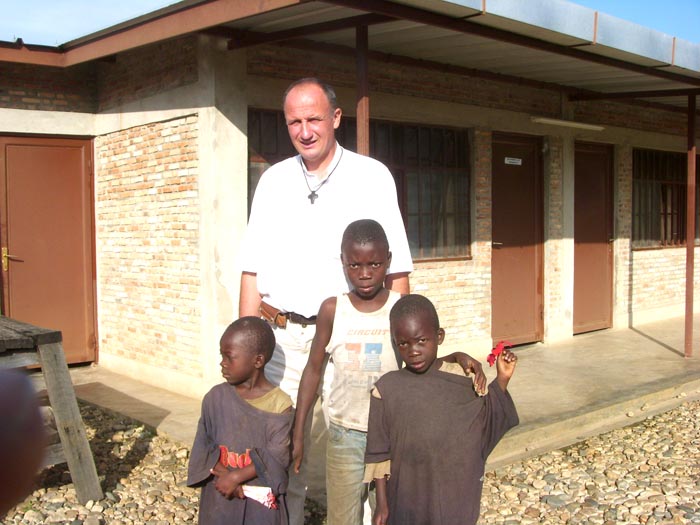Apart from the school equipments they get, they are also educated and mobilized to help in some activities during holidays. Those are vulnerable children from Gihosha who are supported by Gihosha St Jean Baptist Parish–Yves Didier Irakoze
Around 20 adolescents from Gihosha have gathered at St Jean Baptist Parish of Gihosha to take part in manual activities to support the parish as this latter helps them, too.
According to Father Tavernier Noël, the Gihosha Parish Priest, those vulnerable children spend two days doing hand jobs like transporting bricks or stones, cleaning the ground and undertaking other various physical activities.
“Those young children have been here for some activities for the Parish in order to support it. Meanwhile, they become aware that getting something to eat, they have to work hard. So, if the Parish makes some effort to assist them in their education, they have to bring their support to it,” points out Father Tavernier.
He adds that this mobilization was also a way to prepare the event of a priestly ordination of Deacon Elysée Niyokindi on 31st August 2013 at this Parish, and also prepare the ground where a big church will be built in the near future.
The Parish as a second parent
“Those children had a problem of getting even the required contribution for building the fundamental school and we have paid for them. We have also helped those who couldn’t get their marks’ school report scripts because they owe something to their respective schools,” highlights Father Tavernier.
He goes on saying that they have a network of Caritas, a Catholic NGO with which they work hand in hand to help vulnerable people.
“With Caritas, we assist some projects that can help those vulnerable people to fight against poverty and precariousness,” he declares.
He says that on Christmas Day, the parish is always busy, meeting those vulnerable children’s parents to show them they are the Parish target in terms of assistance; they are not isolated but integrated people.
“We want to educate them”
Father Tavernier wishes that this small gesture of good will from Christians’ generosity could teach them to become well-educated youth growing up with that idea of generosity in a country marked by the sense of mutual assistance and solidarity.
He states that they educate them to work hard and know that they have no right to fail at school except when they get sick or die.
“Our main condition to give copybooks to any vulnerable child is that he/she has to succeed next year,” he concludes.















 IWACU Open Data
IWACU Open Data

